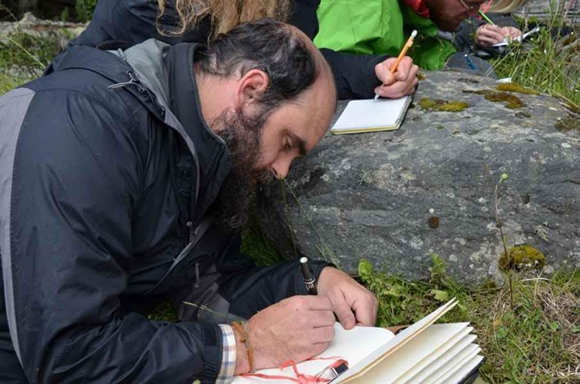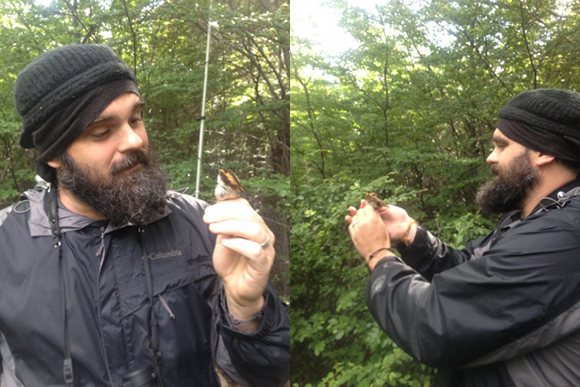Justin Williams
Doctoral student in Philosophy at University of North Texas
My research interests focus on the varying degrees of the metaphysical implications of complexity. While considering these implications I am particularly interested in the nexus of meta-ethics, emergence, and complex adaptive systems. Specifically, I am focusing on the dynamic relationships involved in the complexity emerged as biocultural ethics. I wish to consider the variables of biocultural ethics as they pertain to the relationship we as co-inhabitants share with the living natural world. For humans, this relationship is communicated through our practice of knowledge by language habits. Our language habits emerge from our cognitive perceptions of ourselves nested within or removed from a living environment. Language evolution understood as the mimetic drift of knowledge practices can aid us in understanding the co-evolutionary processes seen in the emergence of culture, language, and ethics. Understanding the coevolution between language, culture, and nature can shed insight into the conflicts that arise between the emic nature of local ecological knowledge and etic knowledge practices foundational to logics of biocultural homogenization. Just as cultures have evolved over time so too have habits stemming from our knowledge practices evolved. These habits are mental, material, and cultural-linguistic and over time as our knowledge and language has evolved our ethics evolve with them. In Western tradition of ethics our efforts to extend consideration from human to human, human to animal, and now human to land requires philosophers to further consider the metaphysical implications surrounding such extension.

Knowing is effective action operating in the domain of existence of living beings. Self-producing processes are innate in all living beings and these processes are but one link between humans and the rest of the living world. Maturana and Varela (1998) considered these biological process autopoietic. The network of interactions related to the biophysical emergence of living beings by which we can participate in the phenomenon of distinguishing one thing from the whole depends upon the integrity of the processes that make it possible. As philosophers we must consider the implications of these processes not only in the material realm but also in the cognitive, psycho-spiritual, and cultural-linguistic realms as well. If we are to understand the relationships of co-inhabitants in all of their complexity, I believe then we must explore the myriad of language habits representing the biocultural diversity of knowledge practices of humans and non-humans alike. In my research, I invite us to consider the cultural-linguistic phenomenon as an emergent property of the autopoietic organization found in human systems. There are roughly 6,500 languages that remain in the world, 90% of these languages are expected to go extinct in the next 35 years. Language extinction is a serious threat to our collective knowledge and efforts to mitigate this trend are imperative. The loss of a language is the final evidence of an entire legacy of knowledge lost.

The work being conducted at Omora Ethnobotanical Park represents a philosophical praxis. As I further develop the theoretical underpinnings of my philosophical assumptions, I believe the work being done here offers an experiential opportunity to actively conserve the living nexus I believe to be fundamental to knowing a novel approach to co-inhabiting a living natural world. My work here is providing me the opportunity to expand my research to focus not only on the biophysical world of the birds that call the worlds southern most forest home, but also, the traditional ornithological knowledge of the Yahgan people. This research experience offers a transdiciplinary approach to address biocultural conservation initiatives aimed at not only protecting one of the last remaining wildernesses, but also preserving the rich heritage of the habits, habitats, and co-inhabitants.